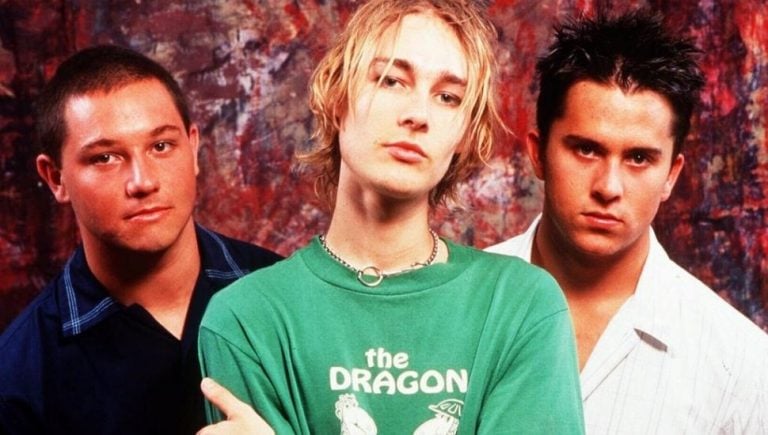Silverchair frontman Daniel Johns has detailed his battle with anorexia nervosa in the late 90s.
In the second episode of his Who Is Daniel Johns? podcast, the musician framed that the growing notoriety of Silverchair following the release of their second album, 1997’s Freak Show, led to him becoming a recluse and developing an eating disorder.
Johns notes that amid Silverchair’s fame, and the bullying he was subject to when returning home to Newcastle, the only aspect of his life he could control was his decision to eat.“That’s eating disorder 101 … I couldn’t control anything but I could control what I ate,” Johns told interviewer Kaitlyn Sawrey.
Johns confined himself to his bedroom. “I used to wait until everyone went to bed and then I would take her for walks at 2am for like, three hours because I was anorexic so I was trying to lose weight,” he continued.
These twilight walks were Johns’ only escape from his bedroom. During this period, fans would camp outside his family home, and critics would spray-paint anti-Silverchair graffiti on the front fence if he did not leave the house.
Johns’ battle with anorexia was previously detailed in The Book of Daniel, a biography written by author Jeff Apter. “[Johns] started to test himself, seeing how little he could eat and still get by and his weight slipped to 50kg,” the author wrote.
In the book, Johns admits that he didn’t realize “how bad his illness had gotten”, adding: “I was just eating so I wouldn’t collapse.”
Love Music?
Get your daily dose of metal, rock, indie, pop, and everything else in between.
Listen to ‘Ana’s Song (Open Fire)’ by Silverchair

Family and friends enlisted the help of producer Nick Launay to coax Johns out of his isolation. Launey recounted that Johns’ mother told him that she heard Johns’ chipping away at new music from his bedroom, “Maybe the best thing to get him out of this room and get him to record some of them,” said Launay.
At this point, Johns had fallen out with his bandmates Ben Gillies and Chris Joannou. “I was being ostracised,” says Johns. “Everyone was going to parties and having a really fucking great time. I was so depressed and anorexic. I was just sitting in my room trying to keep the band afloat. I just felt abandoned.”
So Launay went up to Newcastle to jam with Johns, initially only playing covers of songs they loved. Eventually, Johns opened up and began showing Launay original compositions, “the more I was enthusiastic about these songs, because they were genuinely brilliant, he played more.”
Launay managed to reunite Johns and Gillies and Joannou, and the band would go on to record their seminal third record Neon Ballroom.
“People didn’t talk about mental health in the late 90s, that was not a thing. It made you look like you were weak,” Johns said. “Now, you can talk about it, it’s fine. But over time, I used to just have to sit and figure this shit out by myself.
“Otherwise I was going to be fucking Kurt Cobain, I felt that bad. I didn’t want to be that way and I wanted to forge my own future.”
You can listen to the episode in full below.

































